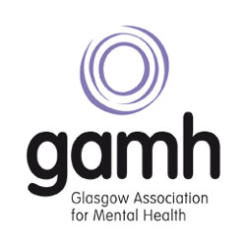The mental health charity, Glasgow Association of Mental Health (GAMH), is facing funding cuts of 40 per cent, following a decision by Glasgow City Council last Thursday.
The cuts will save Glasgow City Council £1.8m a year but according to Unison Scotland, that decision risks the charity's closure and threatens to “take mental health provision in the city back to the 1970s”.
According to an independent report commissioned by GAMH, every pound spent with the charity saves the public purse £6.
“That means for an annual investment of £2.1m, the city saves £11.1m”, the report said.
Deborah Dyer, regional organiser for Unison Scotland, said the possible closure of GAMH would cost Glasgow “millions of pounds each year”.
“This is nothing short of ‘bully-boy’ tactics and we demand councillors take urgent action to put any decision on hold until full and thorough consultation has been carried out,” she said.
“Those suffering from mental health issues have varied and complex needs and basing provision on cost alone is farcical. The model being proposed in the report is not a recovery model but a service model and is a backward step,” she said.
Jenny Graydon, chief executive of GAMH, told Civil Society News: “We are very disappointed that we haven’t been able to persuade Glasgow City Council to reduce the level of cuts. We are very well aware that there is extreme pressure on all local authorities throughout the UK at the moment.
"We have known for a while that there would be cuts to the mental health budget in Glasgow. But to be told in October that the cuts are going to be 40 per cent, it’s the extent of them and the timeframe that we are upset about.
"However, we will continue to work as constructively as we can to minimise the impact to the people that are using the service."
A spokesman for Glasgow City Council said the council faced tough funding decisions and was forced to make the decision to channel funding to a similar organisation that offered a better service.
"The council is facing an exceptionally challenging financial situation and we have to ensure taxpayers' money is being spent effectively,” he told Civil Society News.
"Over the past 12 months we have reviewed our mental health services to ensure we are making the most of available resources. As with other parts of the social work service, this means there has to be an emphasis within the mental health service on early intervention and prevention.
"Under the proposals passed by the executive committee, we fully expect GAMH to continue to be a significant care provider within the city's overall mental health service. However, the review of mental health services undertaken by the council highlighted a clear need for GAMH to improve the services they provide and also that there is a duplication of services.
"As part of the overall reconfiguration of mental health services, we envisage Gamh working more closely with GPs, focusing on prevention rather than crisis intervention and delivering that preventative support more effectively," he said.









